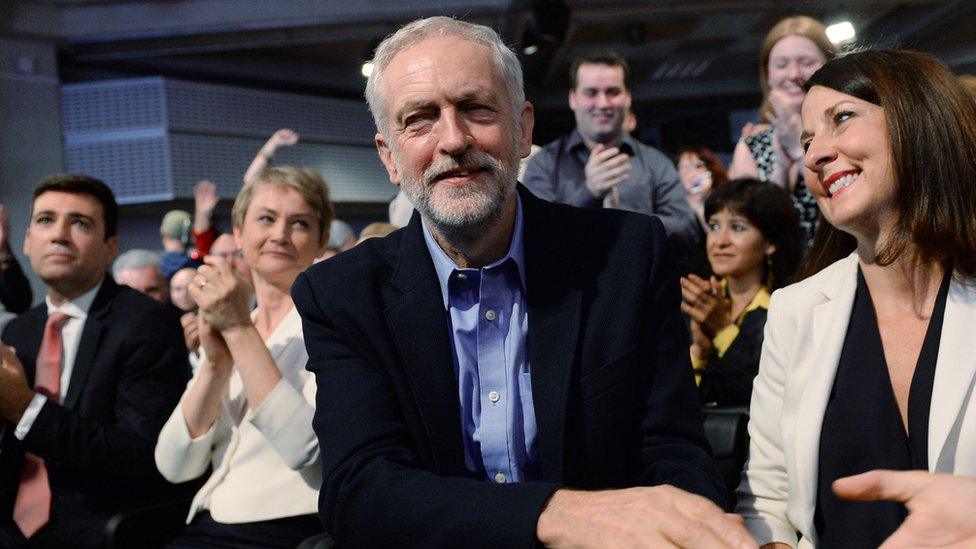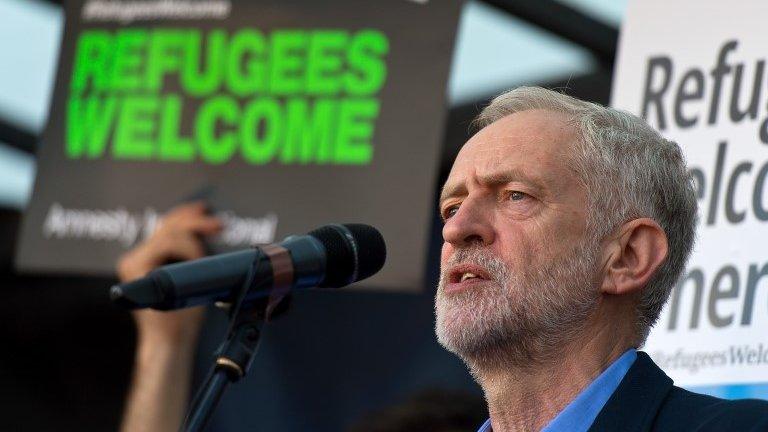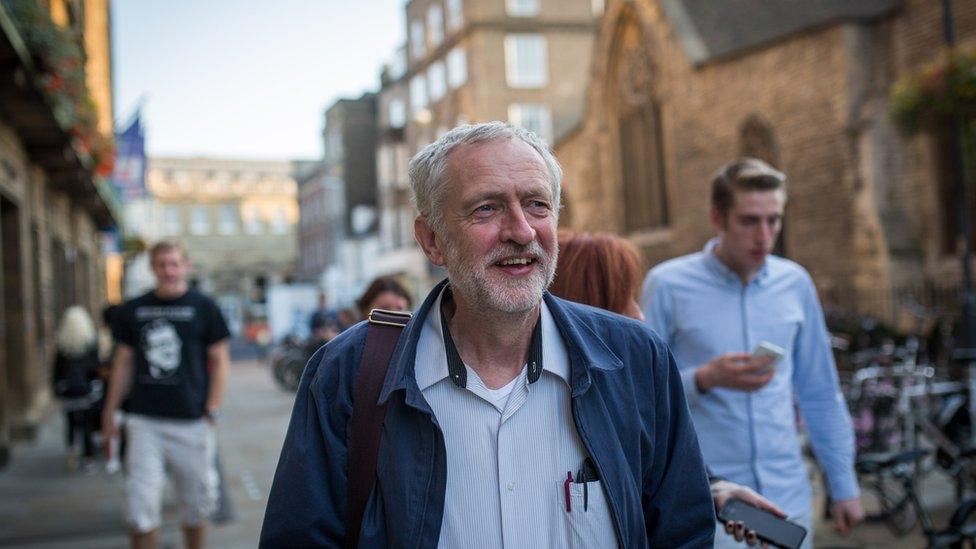What now for Jeremy Corbyn?
- Published

He, and they, did it. Now what? Jeremy Corbyn's victory was not the work of Labour MPs, power brokers, or the party's once powerful machine, but the flex of an old muscle - Labour's left-wing rump - once so weakened, now strong, emboldened by thousands upon thousands of new supporters.
They will have their celebrations tonight - deservedly so. Corbyn has achieved a rarity in modern politics - expanding an electorate. Persuade more people who agree with you to take part, and you can win, however out of fashion those ideas are.
But now installed, there are problems everywhere for Labour's new leader. He has always been an outsider, an insurgent in his own party.
How can he expect loyalty from his colleagues, unite the party, when he has rarely displayed it himself? MPs have been discussing ousting him for weeks. There will likely be initial faint support from most. Don't expect a rapid coup.
But don't doubt most smiles behind him at the despatch box will be through gritted teeth. And shadow ministers' resignation letters have already been written.
It won't be easy for him to build a team robust enough to function in Westminster's brutal world. And wise Labour heads worry it's inevitable the party will return to a fight it's had before - moderates battling to squeeze out the left.
His opponents outside the party won't let him forget his past associations - reaching out to Irish Republicans and vocal opponents of Israel - peacemaking in his view, unacceptable to others. That, combined with his economic views, out of step with the mainstream, means for most Conservatives his success is a political gift. They believe his election is a chance, not just to poke fun week after week, at an accidental leader, but to maim Labour for a generation.
And his election expresses a fundamental truth - the least palatable for Labour at Westminster. The party's core was unable to offer an idea, or a personality attractive enough to inspire or convince. What was, for them, an uncomfortable fantasy is now real.
But the biggest gamble is this: Corbyn won against all the odds by stitching together old voices, new activists and union support. That was enough to win the party's own election. Could that powerful niche ever expand to become a true national movement capable of winning a general election?
That really would be breaking the rules.
- Published12 September 2015

- Published24 September 2016
